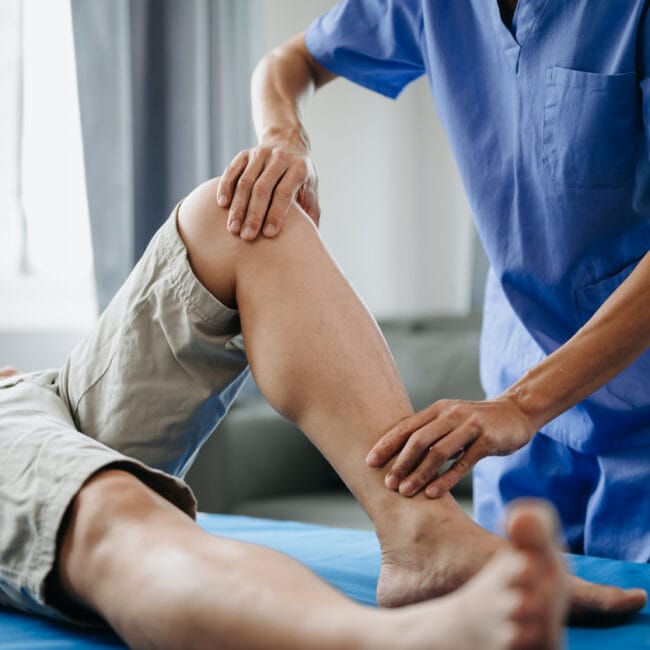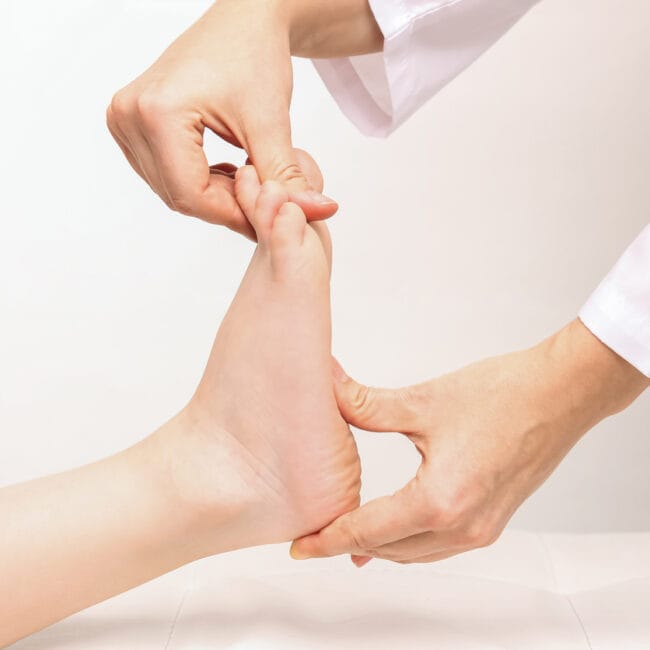
There are anywhere from 650 to over 800 muscles in our bodies, so it is inevitable that they will have the occasional problem. Muscle tightness is far from a serious issue in most cases, but it can still be inconvenient. Although they’re usually not very painful, stiff muscles can be very limiting to our physical activities. So what exactly causes stiff muscles?
There are three main causes behind stiff muscles, and it’s usually fairly simple to identify which category you fall into. These are prolonged periods of inactivity, during exercise, and as a result of continuous exercise.
Periods of Inactivity
As we have discussed many times, there are a lot of everyday activities we engage in that may seem harmless, but will build up a harmful effect over time. The same is true of inactivity. One of the best examples of this is posture, which we all know is something that builds up over time. Like posture, any part of our bodies can be affected by incorrect or insufficient use.
As we are talking about periods of inactivity, it is sitting or lying down in particular that can lead to muscle stiffness. Improper posture at work for example can lead to muscle stiffness in the legs, knees, back, neck, and shoulders. This is because we spend so many hours of so many days a year in the wrong position. But the increasing use of technology has not only made us more sedentary in our free time, it has also made us spend more of our time in strange positions. Lying down on beds or couches, slouching in chairs, using repetitive hand motions on screens can all lead to muscle stiffness over time. In addition to that is the fact that we are not exercising these muscles and keeping them in shape for activity.
During Exercise
The last time you want to be struck by a stiff muscle is unfortunately also one of the most common times. But why exactly is it that our muscles stiffen up when we exercise? The short answer is that it’s down to our muscle fibres, which expand and contract when we move our muscles. Muscle stiffness can occur during exercise when the fibres contract, seize up, and have difficulty expanding again.
But why does this happen? The slightly longer answer is that it’s down to what’s in the fibres. If you are well-hydrated and the fibres have plenty of nutrients, stiffness is less likely to occur, as the fibres will be better equipped to move freely. But, as we discussed recently, there is also a certain genetic factor that affects your susceptibility to stiffness during exercise. There are two types of muscle fibres: fast-twitch and slow-twitch. Fast-twitch don’t consume oxygen, and are better suited to shorts periods of intense activity. But these are also more likely to stiffen up, especially if used for too long. Most of us will have more or less the same amount of fast and slow twitch fibres, although the proportion can change based on exercise and training, so the type of activity you engage in could affect the likelihood of becoming stiff.
After Exercise
Finally, muscles often become stiff after a workout. This is most common for workouts that involve a lot of repetitive use. This occurs because the muscle fibres can tear slightly during exercise, and while these tears won’t necessarily have long-term damage, they can be problematic. Apart from the discomfort, stiffness makes it harder to train, and more likely that we will develop as more serious injury. The best way to prevent this kind of stiffness is not to push yourself too hard, and to gradually increase the intensity of your training over time.















